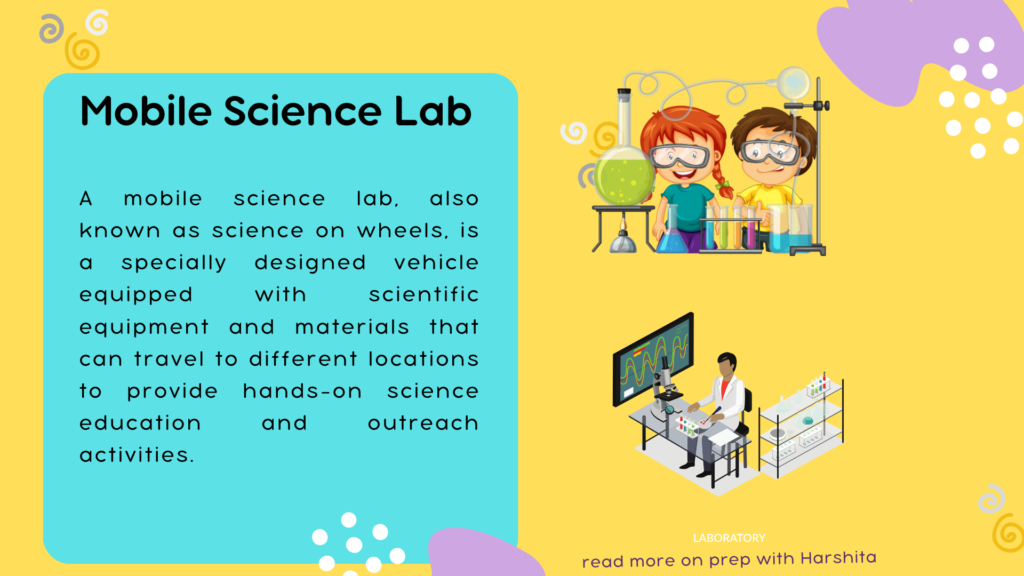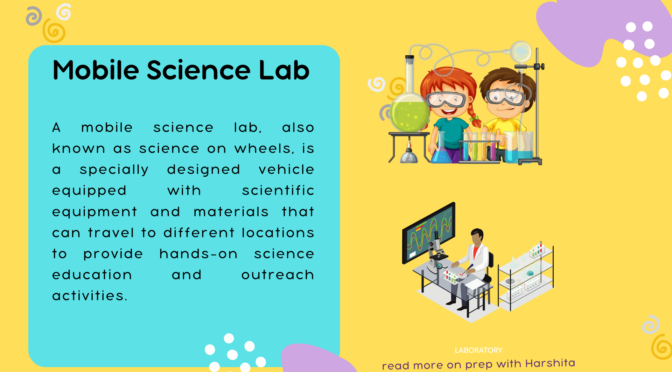A mobile science lab, also known as science on wheels, is a specially designed vehicle equipped with scientific equipment and materials that can travel to different locations to provide hands-on science education and outreach activities.
- Mobile science labs are often used to bring science education to underserved communities, such as those in rural or low-income areas, and to engage students in STEM (Science, Technology, Engineering, and Mathematics) learning outside of the traditional classroom setting.
- Mobile science labs typically include laboratory equipment, such as microscopes, centrifuges, and spectrometers, as well as materials for conducting experiments, such as chemicals, glassware, and lab manuals. They may also include multimedia resources, such as interactive displays and videos, to supplement the hands-on activities.
- Mobile science labs are designed to be self-contained, with their own power supply and water supply, and are often staffed by trained educators and scientists who provide instruction and guidance to participants.
- They may offer a variety of programs, including field trips, classroom visits, and community outreach events, and may be targeted to different age groups and educational levels.
Also Visit: Prep with Harshita
Mobile science labs offer many benefits to students, educators, and communities, including:
- Increased access to science education: Mobile science labs bring science education to underserved communities, such as those in rural or low-income areas, that may not have access to traditional laboratory facilities and resources. This increases access to science education for a wider range of students, which can help to promote equity in education.
- Hands-on learning: Mobile science labs provide hands-on learning experiences for students, which is an effective way to engage students in science and promote understanding of scientific concepts. This type of learning is particularly effective for students who may struggle with traditional classroom learning.
- Innovative and engaging approach: Mobile science labs provide an innovative and engaging approach to science education, which can help to inspire students to pursue careers in science and technology. By offering exciting and interactive science activities, mobile science labs can help to spark curiosity and interest in science among students.
- Community engagement: Mobile science labs can also engage communities in science education and outreach. By bringing science education to community events, festivals, and other public venues, mobile science labs can help to raise awareness about the importance of science and promote a culture of scientific literacy.
- Flexibility: Mobile science labs offer flexibility in terms of scheduling and location. They can be designed to meet the needs of specific schools or communities, and can be scheduled to visit at times that are most convenient for students and educators.
Also Read: Vivarium


